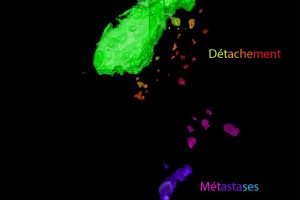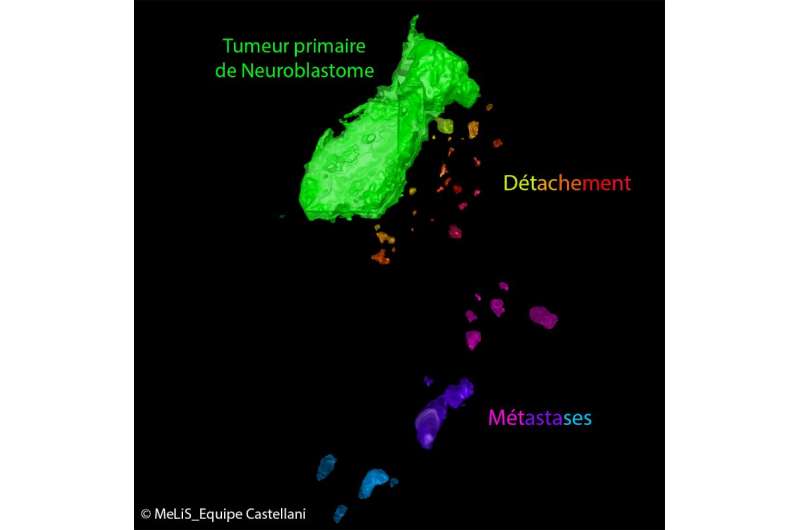Healthy cells can impact tumor progression during embryonic development


Half of childhood cancers arise during the development of the human embryo, which greatly complicates research into these diseases. The team of Valérie Castellani, CNRS senior researcher at the Mechanisms in Integrated Life Sciences (MeLiS) laboratory (CNRS / INSERM / Claude Bernard Lyon 1 University) has thus developed a model that optimally simulates the human embryonic environment by grafting human cancer cells into a chick embryo.
This new method, for which Castellani won the 2018 CNRS Medal of Innovation, makes it possible to explore the mechanisms of metastasis, i.e., how cancer cells spread throughout the body, and to investigate the role of normal cells in the behavior of malignant ones. Using the chick embryo model, Castellani’s team, in partnership with the Biology and Biotechnology for Health (BioSanté) laboratory (CEA / INSERM / Université Grenoble Alpes) and the Lyon Pediatric Hematology and Oncology Institute (Centre Léon Bérard / Hospices Civils de Lyon), trained their attention on neuroblastomas, pediatric cancers originating in neurons that have yet to mature. The metastatic forms of these cancers are extremely aggressive.
Source: Read Full Article




